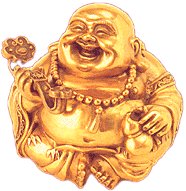|
|



|
|
HOME
Meditation J Krishnamurti The Role of The Teacher Inner Space Tradition & Dependence Meditation Tao Te Ching Dhammapada Buddhist Classics
|
Random Image
Krishnamurti
The Role Of The Teacher
Conversation between Jiddu Krishnamurti
& Professor Jacob Needleman
...continued from part six
Excerpt from The Awakening of Intelligence
Krishnamurti: When you looked at that, your mind was quiet, it didn't say, "I wish I could change it, copy it and photograph it, this, that, and the other" - you just looked. The mind wasn't in operation. Or rather, thought wasn't in operation. But thought comes immediately into operation. Now one has asked, "How can thought be quiet? How can one exercise thought when necessary, and not exercise it when it is not necessary?"
Needleman: Yes, that question is intensely interesting to me, sir.
Krishnamurti: That is, why do we worship thought? Why has thought become so extraordinarily important?
Needleman: It seems able to satisfy our desires; through thought we believe we can satisfy.
Krishnamurti: No, not from satisfaction. Why has thought in all cultures with most people become of such vital concern?
Needleman: One usually identifies oneself as thought, as one's thoughts. If I think about myself I think about what I think, what kind of ideas I have, what I believe. Is this what you mean?
Krishnamurti: Not quite. Apart from identification with the "me", or with "not me", why is thought always active?
Needleman: Ah, I see.
Krishnamurti: Thought is always operating in knowledge, isn't it? If there was no knowledge, thought would not be. Thought is always operating in the field of the known. Whether mechanical, non-verbal and so on, it is always working in the past. So my life is the past, because it is based on past knowledge, past experience, past memories, pleasure, pain, fear and so on - it is all the past. And the future I project from the past, thought projects from the past. So thought is fluctuating between the past and the future. All the time it says, "I should do this, I should not do that, I should have behaved." Why is it doing all this?
Needleman: I don't know. Habit?
Krishnamurti: Habit. All right. Go on. Let's find out. Habit?
Needleman: Habit brings what I call pleasure.
Krishnamurti: Habit, pleasure, pain.
Needleman: To protect me. Pain, yes pain.
Krishnamurti: It is always working within that field. Why?
Needleman: Because it doesn't know any better.
Krishnamurti: No. No. Can thought work in any other field?
Needleman: That sort of thought, no.
Krishnamurti: No, not any thought. Can thought work in any other field except in the field of the known?
Needleman: No.
Krishnamurti: Obviously not. It can't work in something I don't know; it can only work in this field. Now why does it work in this? There it is, sir - why? It is the only thing I know. In that there is security, there is protection, there is safety. That is all I know. So thought can only function in the field of the known. And when it gets tired of that, as it does, then it seeks something outside. Then what it seeks is still the known. Its gods, its visions, its spiritual states - all projected out of the known past into the future known. So thought always works in this field.
Needleman: Yes, I see.
Krishnamurti: Therefore thought is always working in a prison. It can call it freedom, it can call it beauty, it can call it what it likes! But it is always within the limitations of the barbed-wire fence. Now I want to find out whether thought has any place except in there. Thought has no place when I say, "I don't know." "I really don't know." Right?
Needleman: For the moment.
Krishnamurti: I really don't know. I only know this, and I really don't know whether thought can function in any field at all, except this. I really don't know. When I say, "I don't know", which doesn't mean I am expecting to know, when I say I really don't know - what happens? I climb down the ladder. I become, the mind becomes, completely humble. Now that state of "not knowing" is intelligence. Then it can operate in the field of the known and be free to work somewhere else if it wants to.
...Excerpt from The Awakening of Intelligence



Contact • Feedback • Typo • Privacy • Home